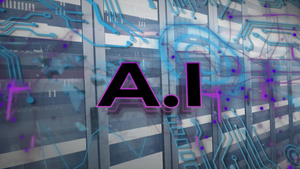
Insight and analysis on the data center space from industry thought leaders.
100-Day Check-in: Q&A with Salute Mission Critical CEO Erich Sanchack100-Day Check-in: Q&A with Salute Mission Critical CEO Erich Sanchack
We spoke with Sanchack about his first 100 days as CEO, as well as the importance of sustainability, the impact of AI, how the data center industry can combat NIMBYism, and much more.

There’s a common term used in the military: “check your azimuth.” Literally, it means to verify that you’re headed in the right direction. It’s often used as a turn of phrase to indicate that you and your community have undertaken the necessary steps to ensure success in your mission.
As a former Marine Corps officer, Salute Mission Critical CEO Erich Sanchack is acutely familiar with this sentiment. Since Data Center Knowledge interviewed Sanchack in March 2023, when he first assumed the mantle of CEO, the company has bolstered its mission to assist service members and their spouses as they make a transition into the tech industry.
After a recent Sustainalytics ESG Rating, which indicated that Salute is in the top 22% of all companies surveyed in terms of its ESG Performance, the company has announced it will offer consultative services in energy management and energy procurement, expanding its efforts to provide customers with access “to the most advanced sustainable solutions,” according to Sanchack. The company has made similar advancements in its utilization of automation and AI. In April, it introduced the “Dynamic Due Diligence” tool to the market, providing clients with customizable assessments, real-time data analysis, and automated reporting.
"The investment in the industry remains healthy," Sanchack told DCK. "The cost of capital has increased significantly in the last year, and yet we’re still continuing to see a tremendous amount of investment growth and capital deployment for the industrial base." As such, Sanchack wants to continue to develop “innovative offerings” for his customers, in order to assist them with their own “azimuth check” as they determine which strategic visions they’d like to pursue in the coming years.
Data Center Knowledge spoke with Sanchack about his first 100 days as CEO, as well as the importance of sustainability, the impact of AI, how the data center industry can combat NIMBYism, and much more.
Data Center Knowledge: I know the military typically has a "100-day check-in" to see how a particular service member is doing and what they’ve accomplished during the first 100 days of their service. How have you adjusted to your role as Salute Mission Critical’s CEO? And what are you proud to have accomplished during that time?

e-s-headshot-cropped
Sanchack: So we continue to see very strong growth in the data center market. Part of my first hundred days has included restructuring Salute's go-to market approach. We have a new organizational design as well, launching a compensation program to align our growth initiatives to our own customer ambitions. We’ve also been focusing on the resiliency of our portfolio offerings to ensure we have a full spectrum of abilities that meet our customer ambitions. Within that scope, we want to deliver in a sustainable manner, including how we leverage emerging technologies like AI and autonomous capabilities. As a result, we've been outpacing market growth, and we see that the strong leadership team that we have in place along with the skills that we have within our organization have combined to drive high performance in the marketplace.
DCK: After recently attending Data Center World 2023, I was struck by how often sustainability emerged as a topic of conversation. What are the biggest strides that Salute Mission Critical has made towards achieving its sustainability initiatives? What do you hope to achieve in the coming years?
Sanchack: This is a great topic, and it’s something in which I’ve personally received recognition by a lot of third-party entities as a champion of sustainability in the industry. I think sustainability is a very relevant topic of discussion.
At Salute, we have a proven track optimizing our power utilization and the efficiencies within our operating capabilities to reduce our carbon footprint. However, sustainability extends beyond the environmental impact elements. For example, research has shown the organizational structures need to be sound to truly call an organization “sustainable.”
Ongoing efforts to bolster our corporate and product governance, the growth of our workforce, the development of labor relations, and the consistent review and revision of quality and safety models are imperative to meeting sustainable goals. And as Salute has been growing, we have maintained a foundation of sustainable regards towards our growth initiatives.
For example, Salute's collective focus on ensuring the governance and ethical practices of our teams, our suppliers, and the company at large are documented and adhered to. We check for that. Within the last month, Salute earned a low risk rating through Sustainalytics ESG audit. And while this is clearly a leading rating from a benchmark standpoint, we will continue to progress in the maturity of our programs and governance constructs.
We have also formed a sustainability committee, which is a valuable resource that monitors and advises us as a company internally as we continue our growth trajectory. And by prioritizing sustainability through our own structure and portfolio offerings, we then pass on and enable our customers to fulfill their aspirations and requirements in a truly impactful manner.
DCK: Salute Mission Critical has recently announced its adoption of the "Dynamic Due Diligence" tool. How would you describe Salute Mission Critical’s relationship to automation and AI? How do you hope to use automation and AI to achieve your business objectives?
Sanchack: We’re looking at emerging technologies like AI and autonomous capabilities to augment our existing offerings so that we can cover our customers' ambitions. We want them to be able to plan, build, operate, and even extend the life of their assets in an affordable and sustainable manner. That's really the key here, right? And we are using AI-driven techniques in computerized maintenance management systems such as CMMS across several data centers. We manage these data centers and we identify potential equipment failures or degraded performance issues before they occur. AI does this by monitoring the data and the patterns. It detects anomalies, it generates alerts, and it enables the technicians to proactively address potential issues.
We also use AI to explore data trends and help transition sites we manage from calendar-based schedules to more predictive maintenance models. The AI-powered systems in the data centers we manage automate the process of creating and managing work orders for our technicians. So these AI algorithms analyze the work orders, classify them based on priority, and then assign them to the technicians based on the technician's skillset and the shift work schedules. And these schedules become more intelligent and provide greater insights over time as the dataset grows and decision making expertise gets more sophisticated.
Lastly, our service delivery platform uses chatbots and virtualized agents that are powered by AI. So it's providing instant and personalized support to our technicians when they access documentation, templates, policies and procedures. This AI technology greatly reduces the time spent searching for resources and improves our operational efficiencies.
Of course, I understand the reluctance about AI. If you're relying on open source and don't have reliable source data, you could be putting yourself at risk. But what we've done in Salute is contained the source where the documentation is coming from. So we know they’re reliable MOPs, SOPs and procedures. We know that the data coming from the equipment is reliable because it's in our controlled realm and space. So it allows for a very high degree of accuracy.
DCK: Data centers have faced a fair amount of so-called "NIMBYism" in recent years, in which local communities have expressed reluctance towards new data centers being built in their area. Given the sharp increase in demand for data and data centers, what steps can the industry take to provide outreach and support for these communities?
Sanchack: Yeah, your question almost leads to the answer, right? The rapid growth of the data center industry has forced communities to be introspective on their own growth plans and to better understand their zoning and permitting of what is characterized by Homeland Security as “essential infrastructure.” And so the data center industry has self-organized into outreach groups in various regions globally to help educate others on the industry itself.
For example, the Data Center Coalition that's out of Northern Virginia, which I was a founding member of, has been active in supporting community outreach. The coalition partners with the local legislators and local government entities across the country to develop relationships and share how the industry can support overall community growth through their efforts and other independent sources. The favorable economic impacts data centers have on a local community have also been well documented. That's spanning from tax relief and energy cost reductions to adjacent industry and job creation. The data center industry has a magnetic effect for the development of a community. And from a Salute perspective, we help enable the data center industry to operate in a sustainable and effective manner.
Most importantly, we're part of the community. We live in these areas. Our families enjoy the quality of life in these communities, and we collectively contribute to the community. Salute engages in community outreach and has many programs that offer support at local, regional, and national levels. Many of these programs have been focused on individual health awareness all the way to the overall ecosystem sustainability. By way of example, Salute Health leads the way in community outreach and beautification. It's been involved in veterans initiatives and sustainability along with participating in global initiatives such as programs like the American Heart Association and other nonprofit organizations.
DCK: We’re almost halfway through 2023. What do you hope to accomplish by the end of the year?
Sanchack: Well, we're continuing to focus on where our customer needs are and where their pain points are. And that's shifting—the economic conditions are shifting, environmental concerns are certainly prevalent, and we want to focus on helping our customers achieve their ambition. And to do this, we continue to invest in our innovation and development processes, and we evaluate how we go to market with our current offerings. Our current offerings have been built through organic capabilities. And as we move forward, we'll continue to invest in the organic piece, but we'll also acquire through M&A activity and/or we will partner with key channel partners to bring the full spectrum of the lifecycle of data center solutions to our customers in an economic and sustainable manner.
For example, we've recently announced the expansion of our offering in the area of energy procurement, which allows for energy hedging and enables our customers to better economically utilize power consumption. We are coupling this offering through specific channel partners who carry expertise in the energy market. This is one of the examples that we have to develop our portfolio of offerings over the next two to three years, actually. We look forward to being at the forefront of innovation, we'll continue to look at innovation as a way to differentiate our offerings.
About the Author
You May Also Like







